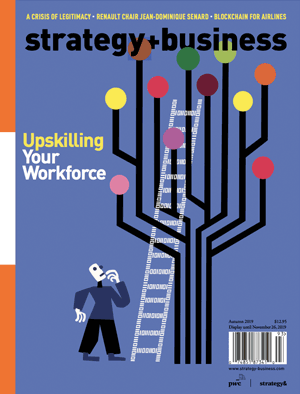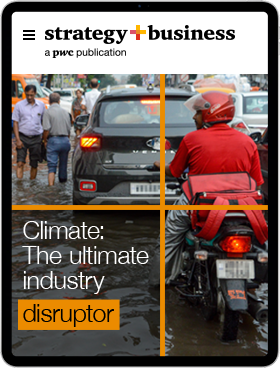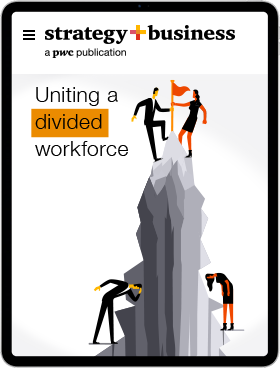Issue 96, Autumn 2019

Cover story
- Companies and local governments can unlock opportunity by working together to raise the quality of talent. See also “6 steps to upskilling your people.”
- GMO
How to build disruptive strategic flywheels
Gaming, artificial intelligence, and deep learning are paving the way for dynamic and resilient 21st-century business models. - GMO
A crisis of legitimacy
Today’s toughest global challenges are unintended consequences of yesterday’s success. If our prevailing institutions can’t adapt, they could lose the right to lead. The dawn of the Chinese blockbuster
Filmmakers with local heroes and digital technologies are disrupting Hollywood’s global advantage.
Leading Ideas
- Tech & innovation
Blockchain’s benefits for the aviation industry
Aerospace businesses could benefit from sharing data about aircraft history, maintenance, and operations. - Consumer & retail
Three reasons Net Promoter Score is past its prime
The metric was useful in simpler times, when companies were beginning to understand the importance of customer experience. But it’s time to replace it. - s+b BlogsConsumer & retail
Competing for consumers in driverless cars
Once drivers become passengers, a new “fifth-screen” economy focused on the in-car experience will flourish. - s+b BlogsLeadership
How business schools can change the world
Experiential learning approaches that give management students exposure to adversity can help create empathetic leaders who are motivated to build a more equitable, sustainable future. - Thought leaders
Creating happier employees
Professor Jochen Menges on the ways companies can develop well-being initiatives that genuinely make people feel better.
Essays
- Strategy
Winning with a data-driven strategy
Making decisions based on hard evidence requires a major shift in culture, technology, and mind-set. - Tech & innovation
Facing up to the automotive innovation dilemma
The rise of connected, autonomous, shared, and electric vehicles will reshape the industry. The challenge in the meantime is survival. - Leadership
Incentives for a strong leadership culture
Three key pay and performance metrics can help define and influence an organization’s values.
Books in Brief
- Business books
A winning effort
In his new book, Neil Irwin finds that people who succeed in management careers do so by trying new things, learning from failures, and embracing changes in direction. - Business books
Diving into deep learning
In their new book on what makes high schools work, education experts Jal Mehta and Sarah Fine offer vital lessons for business leaders as well. - Business books
Conversational computing
James Vlahos’s new book, Talk to Me, is a good starting point for exploring how voice computing could disrupt your business. - Business books
Level setting
In his new book, Michael O’Sullivan looks to the past to find a future for the post-globalization world.
The Thought Leader Interview
Rolling toward responsible capitalism
Jean-Dominique Senard, the departing CEO of Michelin and incoming chair of Renault and of the Renault–Nissan–Mitsubishi alliance, argues that the prevailing concept of corporate purpose needs an update.
Recent Research
- s+b Blogs
Keep your CSR programs on track
Corporate social responsibility can be tricky, especially for multinationals. A new study lays out some guidance.
Trending articles
- 1.From Whole Foods to holistic health: A founder’s story
John Mackey, cofounder and former CEO of Whole Foods Market, shares lessons learned during his 44-year tenure and his vision for the future of health.
- 2.Why your customers should be central to your innovation efforts
Ditching the “science fair” mentality toward innovation will help transform ideas into commercial reality.
- 3.10 principles of organization designThese fundamental guidelines, drawn from experience, can help you reshape your organization to fit your business strategy. See also “A guide to organization design.”
- 4.Can Brands Save the World?“Brand sacrifice” means companies, not consumers, feel the pain.
- 5.Best Time for a Takeover? When the Target’s CEO Turns 65With less at risk personally, retirement-age CEOs may haggle less.
























